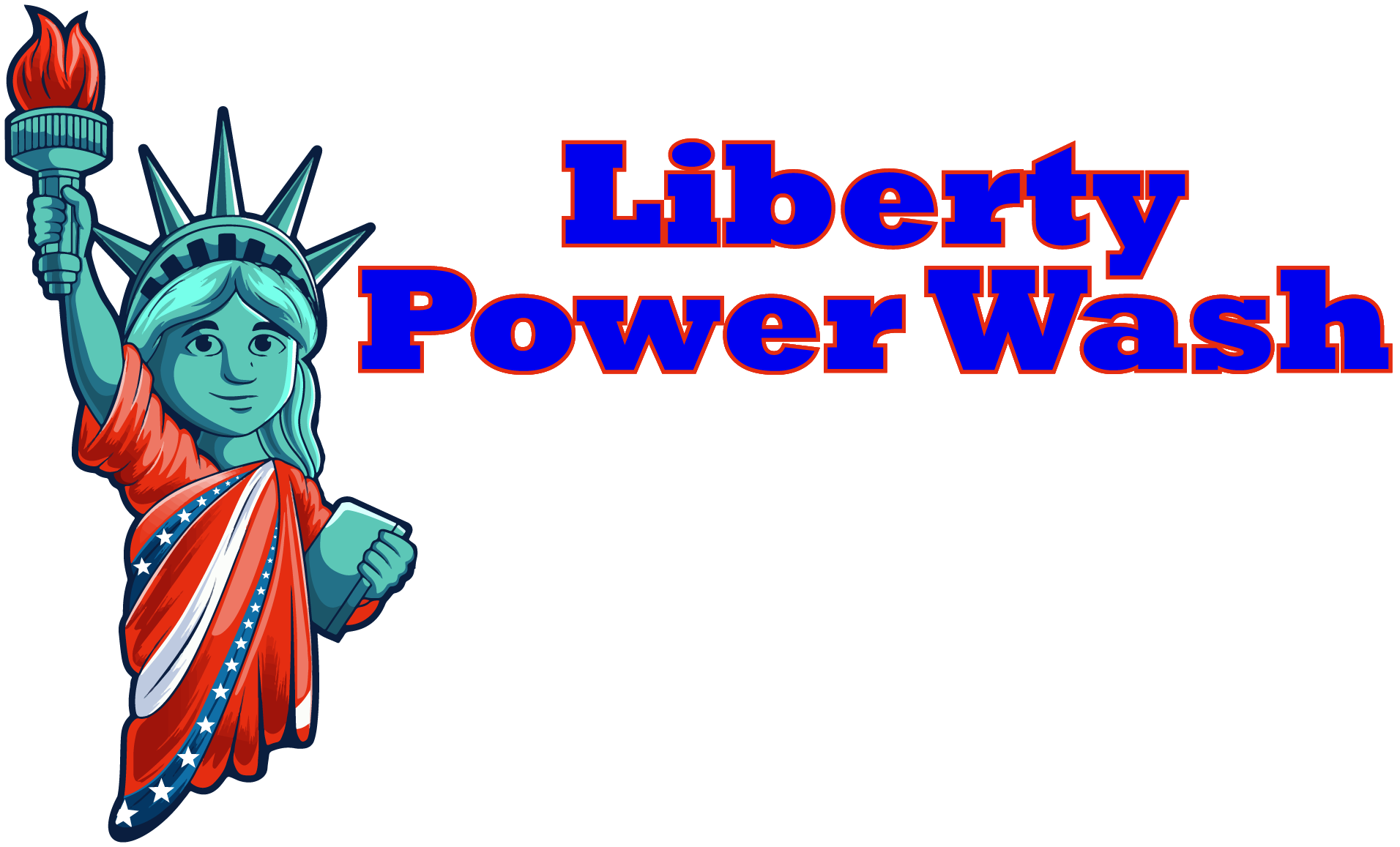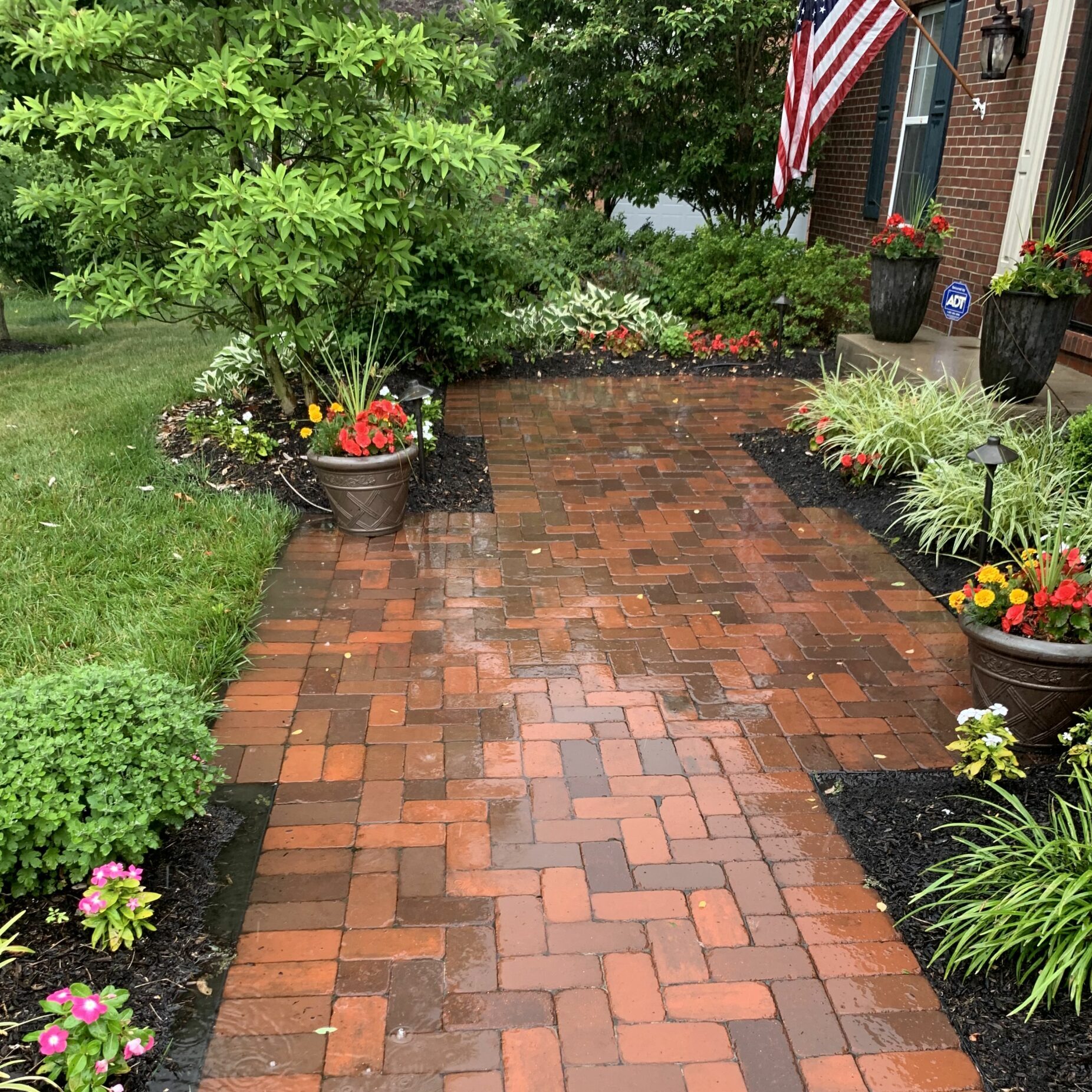What is Concrete Sealing?
As the adage goes, “an ounce of prevention is worth a pound of cure.” In property maintenance, concrete sealing plays a pivotal role. This protective process shields concrete surfaces from weather damage, wear, and staining, enhancing its durability and aesthetic appeal. This article illuminates the process, techniques, and benefits of concrete sealing, and guides you in selecting the right sealer for your needs, empowering you to preserve your property effectively.
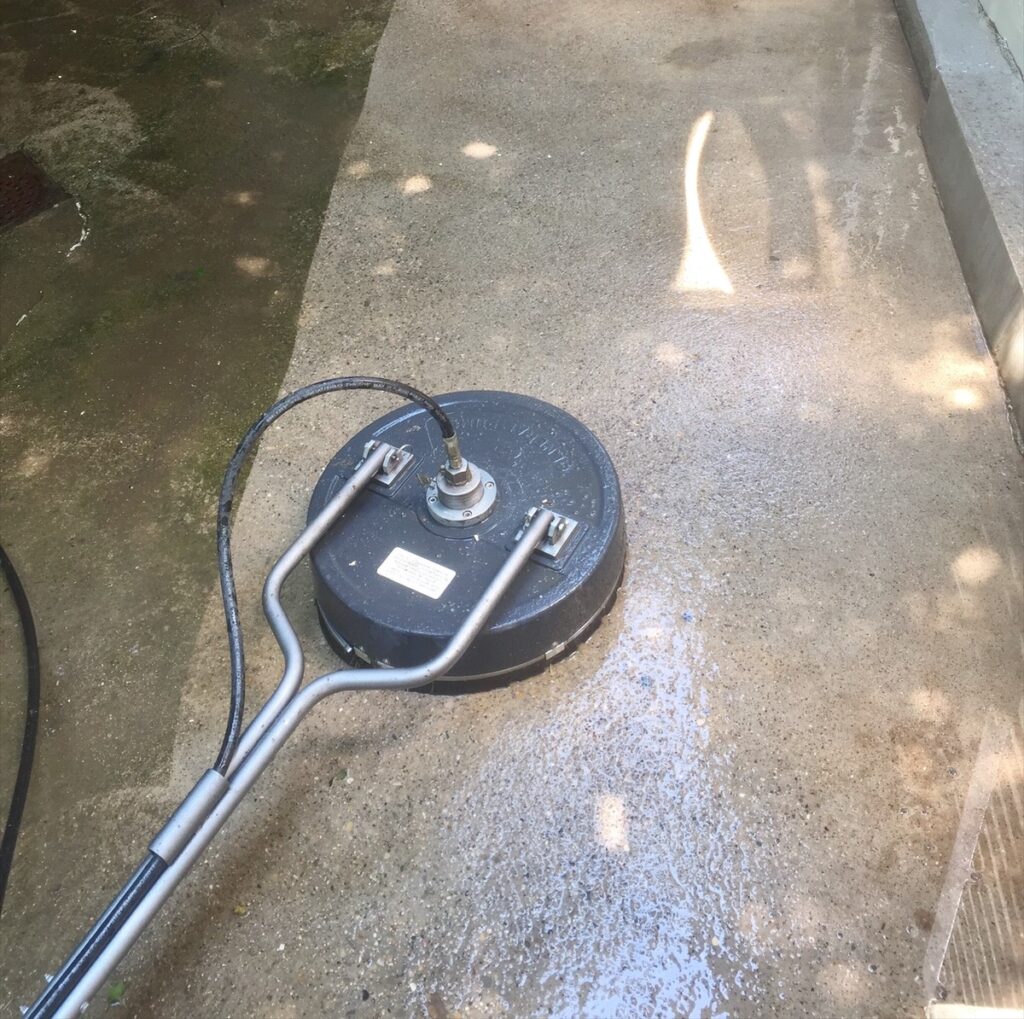
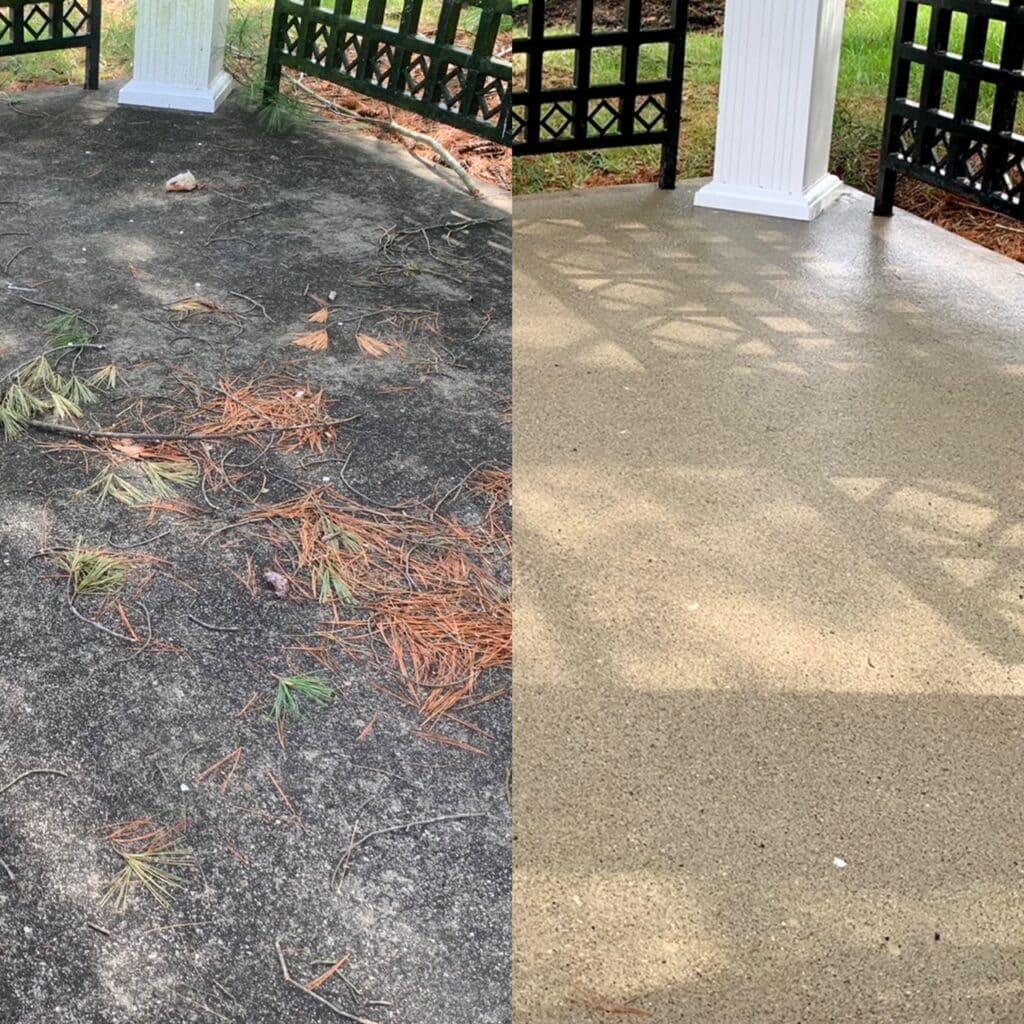
Understanding the Basics of Concrete Sealing
Concrete sealing, a component of professional power cleaning services, involves the application of a protective layer to concrete surfaces to enhance their durability and appearance. Concrete sealing offers a shield against damage caused by water, chemicals, UV light, and regular wear and tear. The process begins by thoroughly cleaning the surface to eliminate all dirt, grime, and existing sealant. Once clean, a high-quality sealant is applied uniformly, ensuring all crevices and pores in the concrete are filled. This creates a barrier that prevents penetration of damaging agents.
The benefits of concrete sealing extend beyond protection. It enhances the visual appeal of the surface, giving it a shiny, well-maintained look, thus increasing the property’s overall value. Furthermore, it simplifies maintenance, as sealed surfaces are easier to clean and resist staining.
In essence, concrete sealing is a freedom-seeking homeowner’s solution to long-lasting, attractive, and low-maintenance concrete surfaces. It’s a critical step in preserving the integrity and aesthetics of concrete spaces, ensuring they remain inviting and functional for years to come.
The Process and Techniques of Concrete Sealing
How does the process of concrete sealing unfold and what specific techniques are employed to ensure optimal results? Concrete sealing typically involves several steps, each layer achieving a durable, aesthetically pleasing surface.
Initially, the concrete is thoroughly cleaned to eliminate any debris, grime, or existing sealers. This can be accomplished using power washing or chemical cleaning methods. Subsequently, the concrete is left to dry completely, as any remaining moisture can interfere with the sealing process.
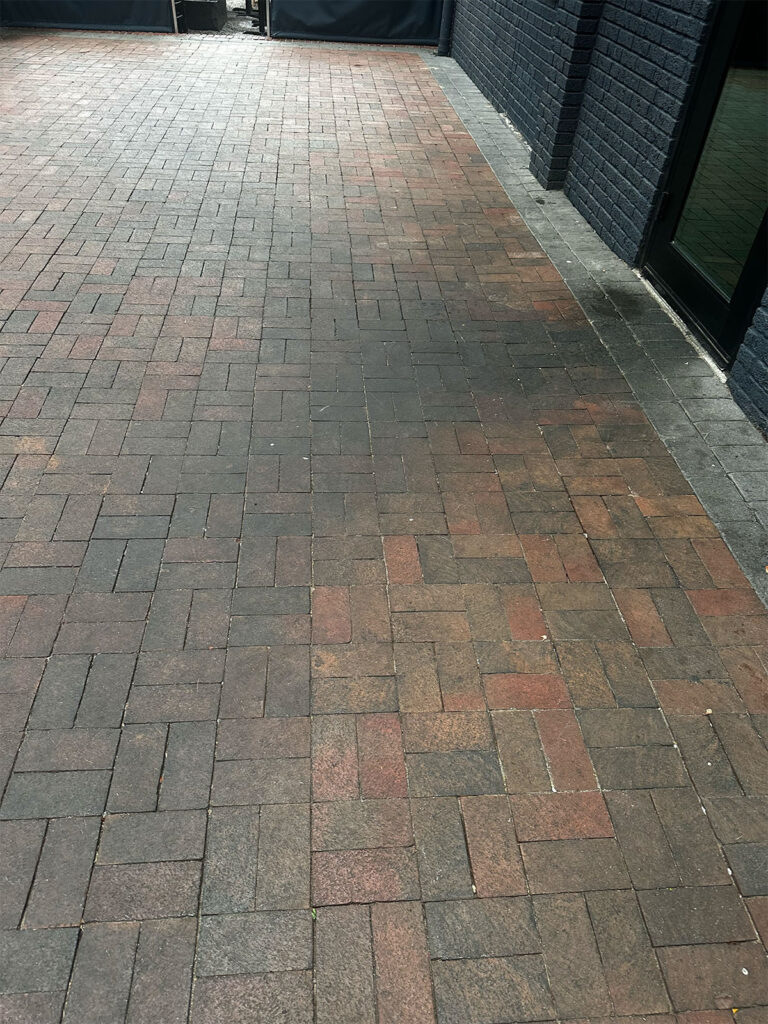
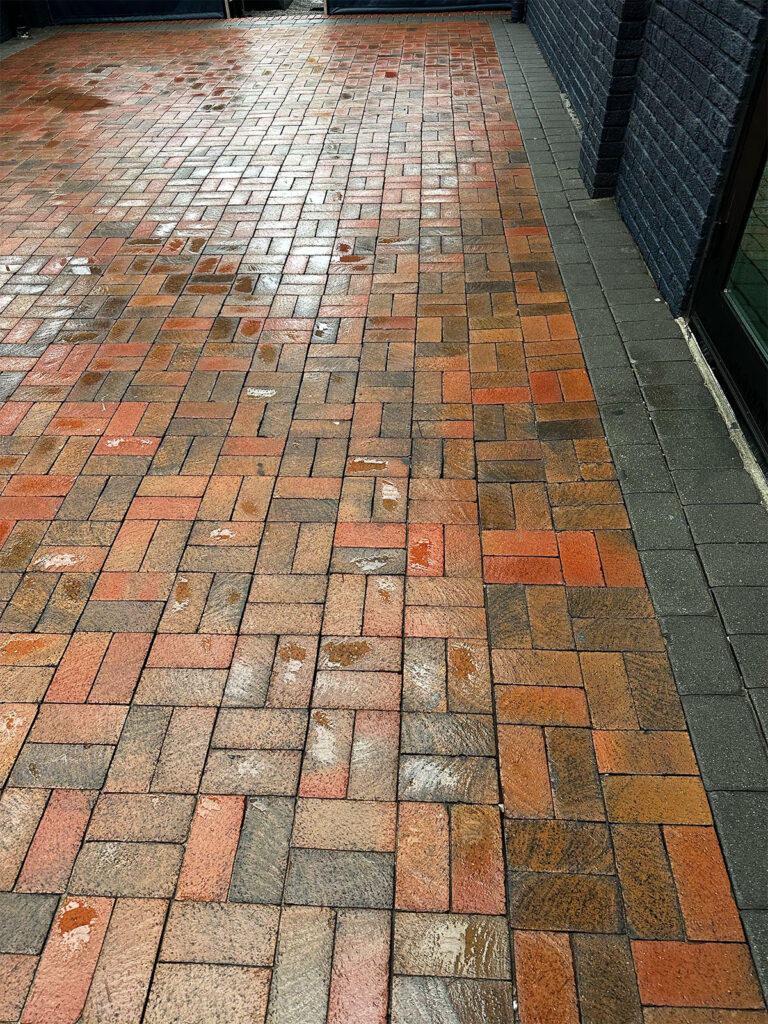
The next stage involves the application of the concrete sealer. Depending on the desired finish, sealers can be applied using a roller, sprayer, or a combination of both. Sprayers are generally used for solvent-based sealers, while rollers are preferred for water-based sealers. The sealer is applied evenly across the surface in a controlled manner to prevent overlaps or pooling.
Following the application, the sealer is allowed to dry for the recommended duration. This can range from a few hours to a few days depending on the sealer type and environmental conditions. Finally, a second coat of sealer may be applied for enhanced durability and finish. This systematic process ensures optimal results in concrete sealing.
The Importance and Benefits of Concrete Sealing
Understanding the significance and advantages of concrete sealing is crucial in maintaining the longevity and aesthetic appeal of your concrete surfaces. Concrete sealing is an often overlooked yet essential step in the maintenance process of concrete surfaces. It provides a protective barrier, shields the concrete from environmental elements, and helps to maintain the original aesthetic appeal.
Here are five key benefits of concrete sealing:
- Enhanced Durability: Sealing creates a protective layer that helps to withstand daily wear and tear, enhancing the durability of the concrete.
- Reduced Maintenance: Sealed concrete is easier to clean and maintain, reducing long-term maintenance costs.
- Improved Appearance: Sealing enhances the color intensity of the concrete, providing a clean and vibrant look.
- Weather Resistance: A sealed surface is more resistant to harsh weather conditions, reducing the risk of damage from rain, wind, or sun exposure.
- Longevity: Sealing extends the lifespan of concrete surfaces, making it a cost-effective choice for long-term use.
These benefits make concrete sealing a preventive measure that safeguards your concrete surfaces, giving them a fresh look while ensuring they last longer.
Different Types of Sealers and Their Applications
There are a variety of sealers available in the market, each with its distinct set of applications and benefits. The common types include acrylic sealers, epoxy resin sealers, and penetrating sealers.
Acrylic sealers are renowned for their fast-drying capabilities and UV resistance. They are typically applied on both interior and exterior surfaces, offering a glossy finish while enhancing the color of the concrete.
Epoxy resin sealers are high-build sealers that provide a thick, glossy finish. They are primarily used for indoor applications due to their limited UV resistance. Their thick coating protects the concrete surface from wear, chemicals, and stains, making them ideal for commercial and industrial use.
Penetrating sealers are commonly used for exterior concrete surfaces. They penetrate the concrete to form a chemical barrier that shields against moisture absorption and deicing chemicals. This sealer does not alter the appearance of the concrete, maintaining its natural look.
Choosing the right sealer depends on the desired aesthetic, the location of the concrete, and the level of protection required. Understanding the properties and applications of each sealer type is key to making an informed choice.
Maintenance and Care Tips for Sealed Concrete
Both regular cleaning and timely resealing are essential for maintaining the durability and aesthetic appeal of sealed concrete. These practices will prevent discoloration, damage, and degradation, thereby lengthening the lifespan of your flooring.
Here are some maintenance and care tips for sealed concrete:
- Regular Cleaning: Removing dust and debris regularly can prevent scratches and stains. Use a soft broom or a dry microfiber mop for daily cleaning.
- Avoid Harsh Chemicals: Acidic or abrasive cleaners can damage the sealer. Opt for pH-neutral cleaners designed specifically for sealed concrete.
- Prompt Stain Removal: Spills should be cleaned up immediately to prevent staining. Use a clean, dry cloth for blotting, and avoid rubbing.
- Resealing Schedule: Generally, sealed concrete should be resealed every 2-3 years. However, high traffic areas may require more frequent resealing.
- Professional Inspection: Have a professional inspect the concrete regularly. They can spot potential issues early and provide appropriate treatments.
Protect your investment with Liberty Power’s concrete sealing services. Our professional team will ensure that your concrete surfaces are protected from water, oil, and other harmful substances that can cause damage and deterioration over time. With our high-quality sealants and expert application techniques, you can rest assured that your concrete will look great and last for years to come. Don’t wait until it’s too late – contact Liberty Power Wash today to schedule your concrete sealing service and keep your property looking its best.
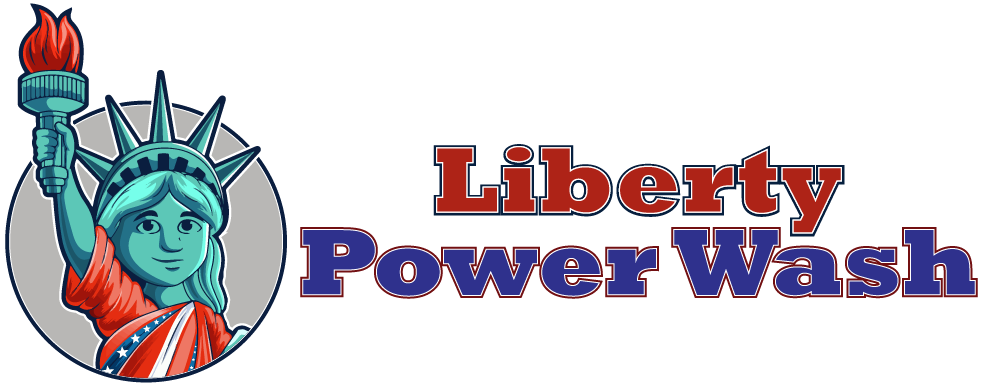
Frequently Asked Questions
What Is the Average Cost of Professional Concrete Sealing Services?
The average cost of professional concrete sealing services varies based on factors such as surface area and condition, typically ranging between $0.50 and $2.50 per square foot, with total costs influenced by labor and materials.
How Often Should I Have My Concrete Surfaces Re-Sealed?
The frequency of re-sealing concrete surfaces depends on various factors, including weather conditions and usage. However, for optimal protection, professionals typically recommend re-sealing approximately every 2-3 years.
Are There Any Specific Climate Conditions That Can Affect the Performance of Concrete Sealers?
Yes, climate conditions can significantly impact the performance of concrete sealers. Extreme temperatures, humidity, and precipitation can affect the curing process, adhesion, and durability of the sealer, potentially leading to premature failure or reduced effectiveness.
Can I Apply a Concrete Sealer on My Own, or Should I Hire a Professional?
While it is possible to apply a concrete sealer independently, professional services are recommended for optimal results. Professionals possess the necessary expertise and equipment to ensure proper application and longevity of the sealer.
What Are the Potential Risks or Disadvantages of Not Sealing My Concrete Surfaces?
Unsealed concrete surfaces are susceptible to damage from weather conditions, stains, and wear and tear. This can lead to aesthetic degradation, decreased longevity, and increased maintenance costs over time, compromising the overall value of your property.
